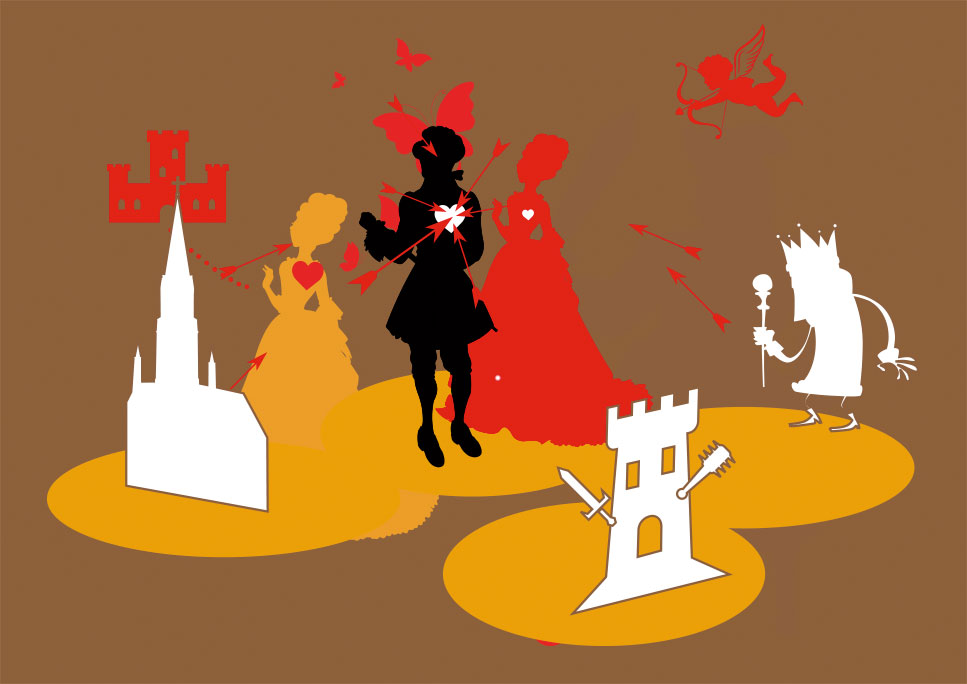Reading Angus Wilson’s 1973 novel As if by magic, I came upon a passage that struck me as a powerful demonstration of how the honour discours works. In this part of his book Wilson describes how a young girl named Alexandra went to the country to her great-grandparents to learn more about her family. She is pregnant by one of her two boyfriends, both with whom she enjoins a polyamorous relationship. Her great-grandparents present themselves as ‘old’ and not bothered any longer by conventions. On page 152 (penguin 1976 ISBN 0 1400.4062 5) her great-grandmother takes her to the garden, knowing already of the predicament her great-grandaughter is in. She refers to ‘labels’ to indicate the ways people position one another. This is the complete citation:
‘Good. Now you don’t want to marry the young man. He’s not your type. Or you’re not his or something. Lots of people would disapprove of that. But as Tom (her husband Sir Thomas Needham -RH) says we’re too old to bother with what the world thinks. We gave our lives to it and we’ve a right to ignore it now. Of course, Tom only thinks he does. Those old memoirs! (He is writing his memoirs, an apparently time consuming and not very productive activity -RH) But I don’t care a hang. No, if you don’t want marriage, I’d be the last to tell you it was unalloyed bliss. The very last. But I am worried about the label you’re giving yourself. It’s difficult enough to be a real person anyway. Look at that woman just now (she refers to a local woman who just visited her asking for support and money to stop the demolition of a house -RH) and all the so-called “people” round here. Noises, not human beings, and irritating noises at that. If you fix yourself with a label, it makes it even harder to be yourself. And that’s what it’ll be -“unmarried mother”! To say nothing of the baby’s ugly label. I don’t want you to do it. Never be a pioneer of anything – first woman this and first woman that. Be yourself. And you can’t be that, if every time you come into the room people are thinking to themselves a whole lot of silly opinions about “unmarried mothers”. There’s bo end my dear, to the stupid clichés people get into their heads unless they’re artists or people of affairs. So what I suggest is that you marry this man, if he’s decent. And if he’s not, marry him just the same and then divorce. Then there’ll be none of this stupid “unmarried mother” business.’
In this quote several honour aspects are referred to. Firstly, existing conventions and opinions about the right thing to do, the rules or the honour code are named when withchild outside marriage. Secondly, the personal honour that is playing up in her great-granddaughter’s life, at least that is what her great-grandmother assumes. She presumes Alexandra is trying to not to find the morally right and socially acceptable way to comply with those conventions, but to go her own way by not marrying the father of her child. Thirdly, she refers to negative labels others will attach to Alexandra, which in her eyes are ‘silly opinions’. Fourthly, she comes up with a solution which will circumvent the labelling as ‘unmarried mother’, which solution seems wholly acceptable socially and fits in the honour discourse.
In my words, the power and the force of the honour discourse is so strong that within that discourse this clever and wise older woman found a way to refrain Alexandra from making a socially harmful decision. Although the word honour does not feature in this quote, in my opinion it is very much present. It shows that when people say honour is something of the past, they are mistaken. The sentiment is still there, still actual, although the vocabulary has changed.
